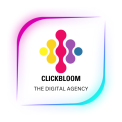Introduction
In today’s competitive digital landscape, businesses are always on the lookout for marketing strategies that provide measurable results and maximize ROI. Performance marketing has emerged as one of the most effective digital marketing strategies, allowing businesses to pay only for actual results rather than just visibility. But what exactly is performance marketing, and how can it help businesses grow? Let’s dive in.
What is Performance Marketing?
Performance marketing is a results-driven digital marketing strategy where advertisers pay for specific actions, such as clicks, leads, conversions, or sales. Unlike traditional marketing methods that focus on brand awareness, performance marketing emphasizes tangible outcomes.
It utilizes multiple digital channels, including:
- Search Engine Marketing (SEM): Running paid ads on search engines like Google Ads.
- Social Media Advertising: Using platforms like Facebook, Instagram, LinkedIn, and Twitter for targeted ads.
- Affiliate Marketing: Collaborating with affiliates who promote your products for a commission.
- Native Advertising: Using content-driven ads that blend with the platform’s organic content.
- Email Marketing: Sending personalized promotional emails to potential customers.
How Does Performance Marketing Work?
Performance marketing operates on a pay-for-performance model, meaning businesses only pay when a specific action is completed. The key metrics used in performance marketing include:
- Cost Per Click (CPC): Paying when a user clicks on an ad.
- Cost Per Impression (CPM): Paying per 1,000 ad impressions.
- Cost Per Lead (CPL): Paying when a lead is generated.
- Cost Per Acquisition (CPA): Paying only when a sale or conversion occurs.
- Return on Ad Spend (ROAS): Measuring the revenue generated from every dollar spent on ads.
Marketers optimize their campaigns using real-time data and adjust their strategies to improve conversions and ROI.
How Performance Marketing Helps Businesses
1. Cost-Effective Marketing Strategy
With performance marketing, businesses only pay when a user takes a desired action, making it a cost-effective alternative to traditional advertising methods. This ensures better budget utilization and minimizes wasted ad spend.
2. Measurable Results & Data-Driven Decisions
One of the key advantages of performance marketing is that it is data-centric. Businesses can track real-time metrics like impressions, clicks, and conversions to understand which strategies work best. This allows them to refine campaigns for better results.
3. Improved ROI & Higher Conversion Rates
Since performance marketing focuses on driving specific actions, businesses see higher conversion rates and better return on investment (ROI) compared to traditional marketing approaches.
4. Targeted Advertising
Performance marketing allows businesses to target specific audiences based on factors like location, demographics, behavior, and interests. This ensures that ads are shown to the right people, increasing the chances of conversion.
5. Brand Awareness & Customer Acquisition
While performance marketing is goal-driven, it also helps in building brand awareness. Through targeted campaigns, businesses can expand their reach and acquire new customers at a lower cost.
6. Scalability & Flexibility
Performance marketing campaigns can be easily scaled based on business goals. If a campaign is performing well, businesses can increase their budget to drive more conversions. Additionally, marketers can tweak their strategies in real-time to optimize results.
7. Risk-Free Marketing
Since businesses pay only for results, performance marketing is a low-risk marketing strategy. Unlike traditional ads where you pay for exposure, here you’re paying for actual engagement and conversions.
Best Practices for Performance Marketing
To make the most of performance marketing, businesses should follow these best practices:
- Set Clear Goals: Define specific objectives such as lead generation, sales, or website traffic.
- Choose the Right Digital Channels: Select platforms that align with your business and target audience.
- Optimize Landing Pages: Ensure your landing pages are optimized for conversions with clear CTAs.
- Leverage A/B Testing: Test different ad creatives, headlines, and targeting strategies to find what works best.
- Monitor & Analyze Performance: Use analytics tools to track campaign performance and adjust strategies accordingly.
Conclusion
Performance marketing is a powerful tool that enables businesses to achieve their marketing goals with measurable and cost-effective strategies. Whether you are a startup looking to generate leads or an established brand aiming for higher sales, performance marketing can help you grow your business efficiently.
By leveraging data-driven insights, targeted advertising, and scalable campaigns, businesses can optimize their marketing efforts and drive real results. If you’re looking to take your digital marketing strategy to the next level, performance marketing is the way to go!
🚀 Want to implement a performance marketing strategy for your business? Get in touch with us today!
